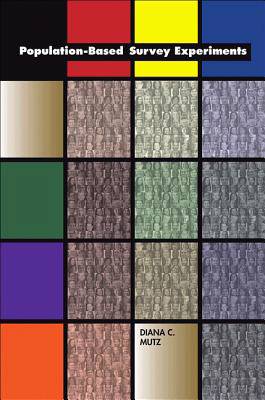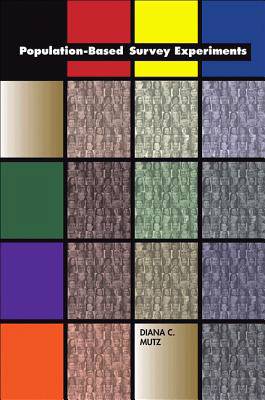
Door een staking bij bpost kan je online bestelling op dit moment iets langer onderweg zijn dan voorzien. Dringend iets nodig? Onze winkels ontvangen jou met open armen!
- Afhalen na 1 uur in een winkel met voorraad
- Gratis thuislevering in België vanaf € 30
- Ruim aanbod met 7 miljoen producten
Door een staking bij bpost kan je online bestelling op dit moment iets langer onderweg zijn dan voorzien. Dringend iets nodig? Onze winkels ontvangen jou met open armen!
- Afhalen na 1 uur in een winkel met voorraad
- Gratis thuislevering in België vanaf € 30
- Ruim aanbod met 7 miljoen producten
Zoeken
Omschrijving
Population-based survey experiments have become an invaluable tool for social scientists struggling to generalize laboratory-based results, and for survey researchers besieged by uncertainties about causality. Thanks to technological advances in recent years, experiments can now be administered to random samples of the population to which a theory applies. Yet until now, there was no self-contained resource for social scientists seeking a concise and accessible overview of this methodology, its strengths and weaknesses, and the unique challenges it poses for implementation and analysis.
Drawing on examples from across the social sciences, this book covers everything you need to know to plan, implement, and analyze the results of population-based survey experiments. But it is more than just a "how to" manual. This lively book challenges conventional wisdom about internal and external validity, showing why strong causal claims need not come at the expense of external validity, and how it is now possible to execute experiments remotely using large-scale population samples. Designed for social scientists across the disciplines, Population-Based Survey Experiments provides the first complete introduction to this methodology.- Offers the most comprehensive treatment of the subject
- Features a wealth of examples and practical advice
- Reexamines issues of internal and external validity
- Can be used in conjunction with downloadable data from ExperimentCentral.org for design and analysis exercises in the classroom
Specificaties
Betrokkenen
- Auteur(s):
- Uitgeverij:
Inhoud
- Aantal bladzijden:
- 200
- Taal:
- Engels
Eigenschappen
- Productcode (EAN):
- 9780691144528
- Verschijningsdatum:
- 25/07/2011
- Uitvoering:
- Paperback
- Formaat:
- Trade paperback (VS)
- Afmetingen:
- 152 mm x 231 mm
- Gewicht:
- 317 g

Alleen bij Standaard Boekhandel
+ 87 punten op je klantenkaart van Standaard Boekhandel
Beoordelingen
We publiceren alleen reviews die voldoen aan de voorwaarden voor reviews. Bekijk onze voorwaarden voor reviews.











